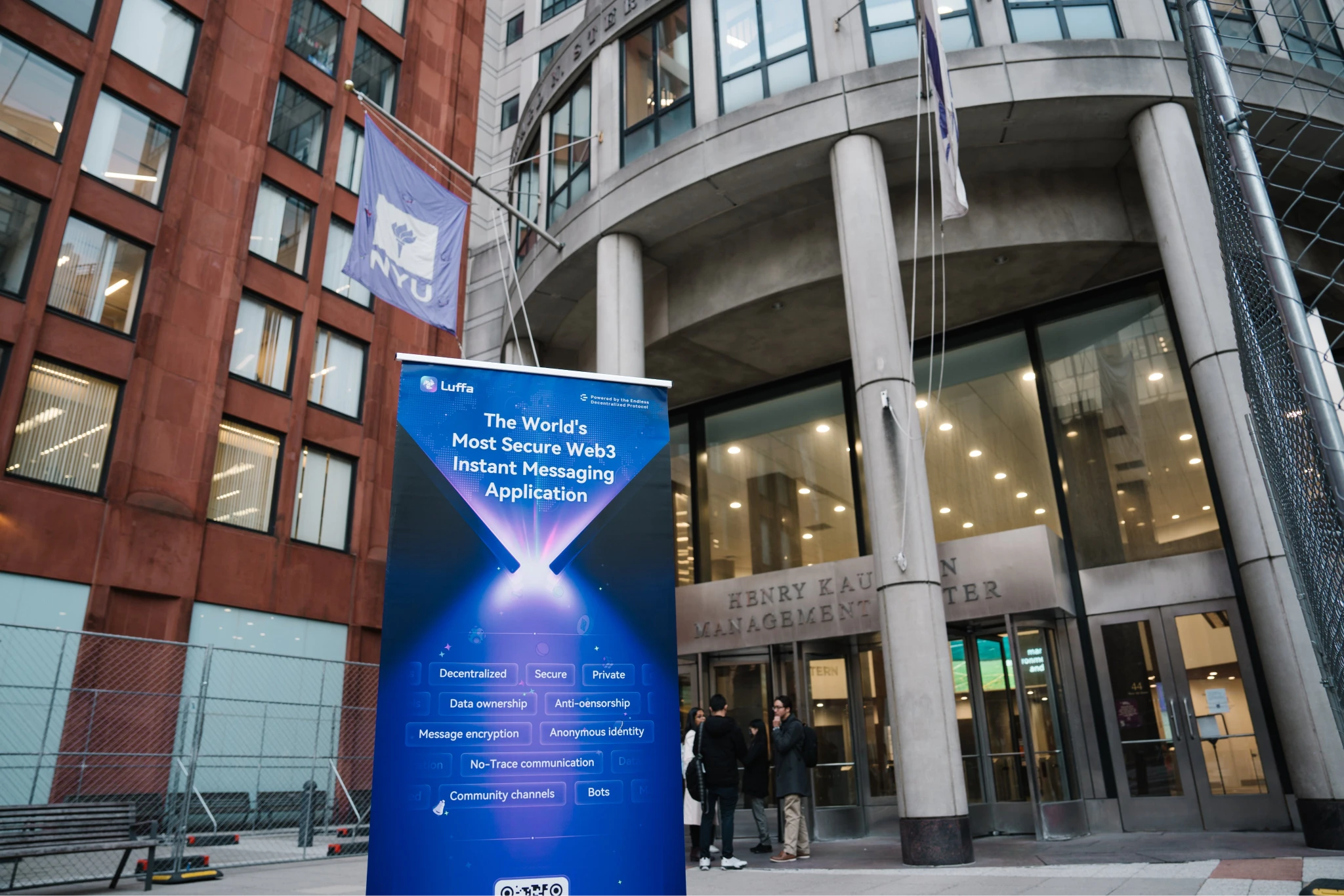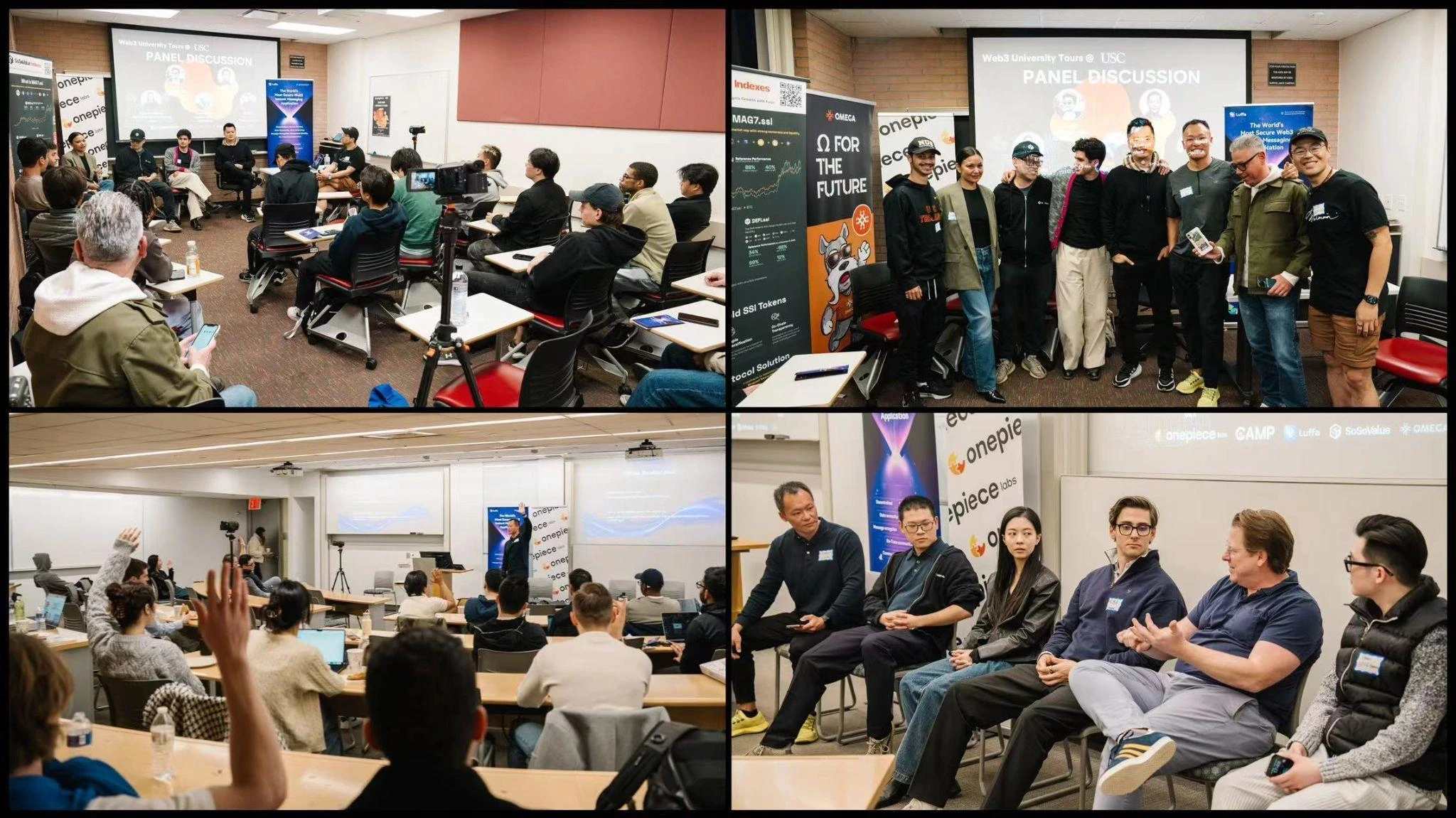On April 22, with the successful conclusion of the Carnegie Mellon University (CMU) event, Luffas North American campus tour officially completed the entire itinerary of this stage.
This university tour, which lasted for more than a month, covered ten top North American universities, including Stanford University, University of California, Berkeley, University of California, Los Angeles, University of Southern California, University of Texas at Austin, Harvard University, Massachusetts Institute of Technology, New York University, Columbia University and Carnegie Mellon University. Through keynote speeches, roundtable discussions, product experience and other forms, Luffa built a Web3 exploration path from the forefront of technology to the heights of thought, and sowed the seeds of decentralized social concepts in colleges and universities.

From the Bay Area to Boston, a Web3 campus dialogue across North America
The North American campus tour spanned the North American continent, connecting the five major innovation centers of Silicon Valley, Los Angeles, Austin, Boston, and New York. The event attracted more than 1,000 on-site audiences and doubled online participants, including students, professors, Web3 practitioners, developers, content creators and other diverse roles.
Several recent events on the East Coast focused on topics such as How to better combine Web3 with AI and The foundation of large-scale application of Web3, which triggered exciting discussions on topics such as privacy protection of AI training data and personalized community governance mechanisms:
At Harvard University and MIT, the team focused on sharing the concept of AI-driven decentralized social networks, focusing on the value of decentralized identity (DID) in data sovereignty and community consensus and personalized AI agents and on-chain interpretable data structures. Luffa and MIT Media Lab researchers further exchanged views on the trusted citation mechanism for fine-tuning data for AI models and explored the possibility of building a decentralized cognitive network. Both schools had a heated discussion on the user-led on-chain social mechanism, and some students and researchers expressed their interest in participating in the co-construction of experimental nodes in the Boston area.
At New York University and Carnegie Mellon University, the topic focused on How young people can participate in Web3. Luffas viewpoint - Web3 is not just the next generation of financial system, but also a new way of value creation and governance - resonated widely. Discussions were held on topics such as participatory community design and barrier-free creation mechanism, and it was generally believed that as the infrastructure gradually matures, it is now a critical time for young people to get involved and shape the new generation of Web3 social paradigm.
At Columbia University, Luffa focused on the core issue of Can AI+Web3 reshape the next generation of Internet infrastructure? and had a conversation with guests from Uniswap Labs, Polygon Labs, Stellar Development Foundation and other projects. The focus was on sharing Luffas latest progress in the direction of on-chain social intelligence, and envisioning how to establish sustainable on-chain social influence for users through an AI-driven dynamic personality system. Polygon representatives proposed the potential of Layer 2 in supporting high-frequency interactions, and Uniswap guests shared their long-term thinking on the scenario of AI and decentralized protocol collaborative decision-making.

Ambassador Program Continues to Advance, Inspiring More Web3 Creativity
During the event, Luffa simultaneously promoted the ambassador recruitment plan for North American universities, building a decentralized community network composed of Web3 core users and community leaders. At present, the first batch of seed ambassadors have covered ten touring universities, and applications will continue to be open in the future. They will connect the bridge between users and technology, and continue to advocate the development concept that Luffa has always advocated: data sovereignty, privacy priority and social scenario-driven.
As a decentralized social platform supported by Endless Web3 Genesis Cloud, Luffa allows users to enjoy rich social and financial functions while enjoying complete data sovereignty and privacy protection. Its innovative technical advantages have received widespread attention. Its underlying protocol Endless integrates a variety of AI capabilities and component resources, and its development model of building Web3 applications like Lego has also attracted many developers willingness to cooperate further. Many university technical teams have expressed their expectation to design more decentralized application scenarios based on the Luffa+Endless protocol, and jointly outline a Web3 co-creation ecosystem full of innovation and vitality.
Endless developer incentive program launched, entering a new stage of ecological construction
Taking the ten-school tour as a starting point, Luffa has completed the first phase of product cold start and developer ecosystem warm-up, and is about to enter a global product expansion and ecosystem construction cycle.
Recently, the team and Endless officially launched a developer incentive program to support innovative Web3 application development through a special fund of US$1 million. The program is open to university developers, maker teams, product managers and hackathon participants around the world, and focuses on encouraging developers to explore two key directions: AI agent + Web3 and migration from Web2 to Web3.
In addition to the incentive plan, Endless ecosystem project Luffa will also fully launch product promotion activities for global users in the second quarter of 2025, including preparations for a global launch conference, launch of community incentive mechanisms and other important nodes. Luffa will continue to build an open ecological network, and work with more developers, researchers and content creators to explore the construction path of the next generation of social paradigms.
Although the North American campus tour has come to an end, the profound changes in Web3 social networking have just begun.
About Luffa
Luffa is a social platform based on distributed and encrypted technology, dedicated to protecting user privacy and data security. All user data is protected by end-to-end encryption ( E2EE ) and is only stored on the users own device, without centralized backup. User accounts are not associated with real user information, effectively preventing personal information leakage. Here you can also easily create your own channels, mini-programs and AI robots.
Official website | Twitter | Telegram | PPT introduction | User guide
About Endless Web3 Genesis Cloud
Endless is a distributed intelligent component protocol that is positioned as a connector from Web2 to Web3, enabling developers to easily build secure and efficient Web3 applications while ensuring user privacy, asset security, and data autonomy. Endless integrates a variety of rich AI capabilities, allowing developers to easily and conveniently integrate AI capabilities into their DApps or build AI Agents on the chain.
Official website | Twitter | Telegram | PPT introduction | Developer introduction document










